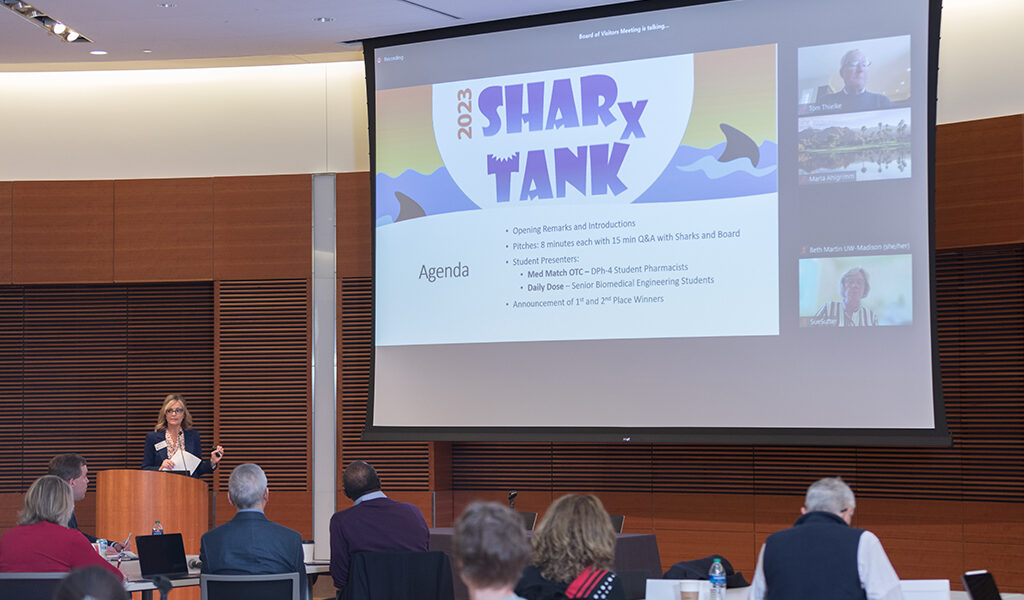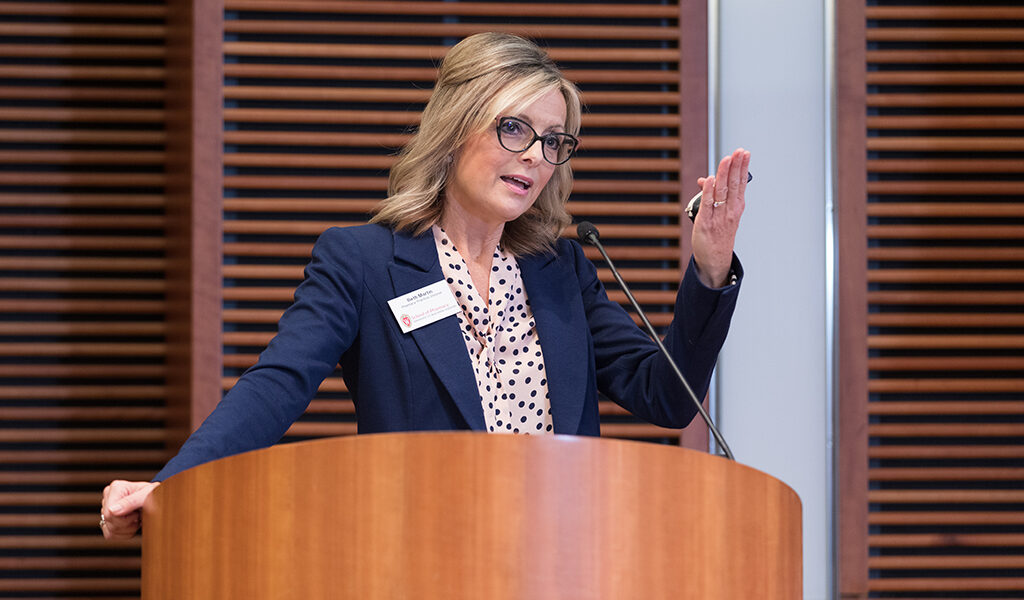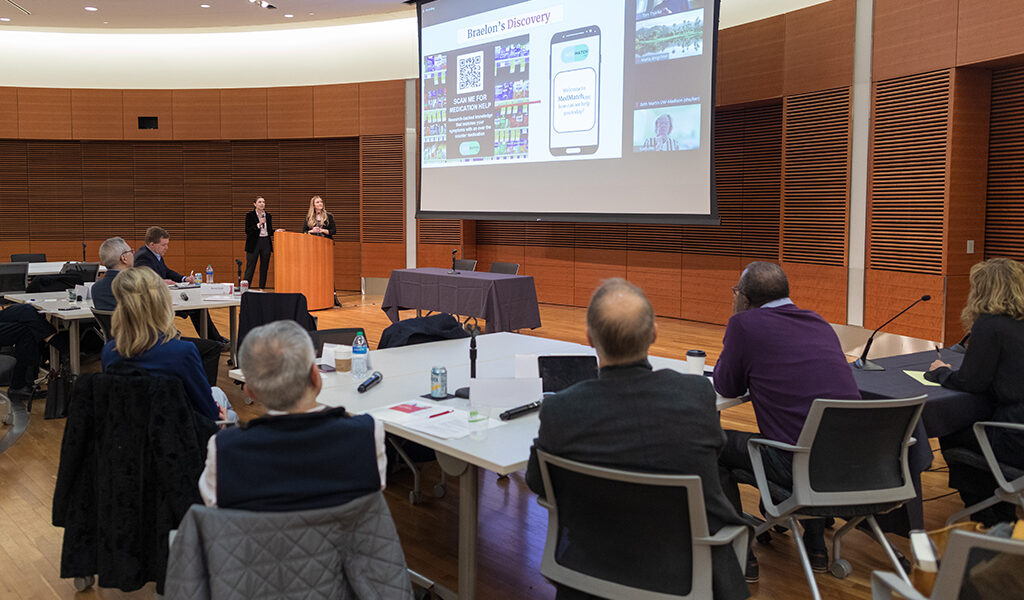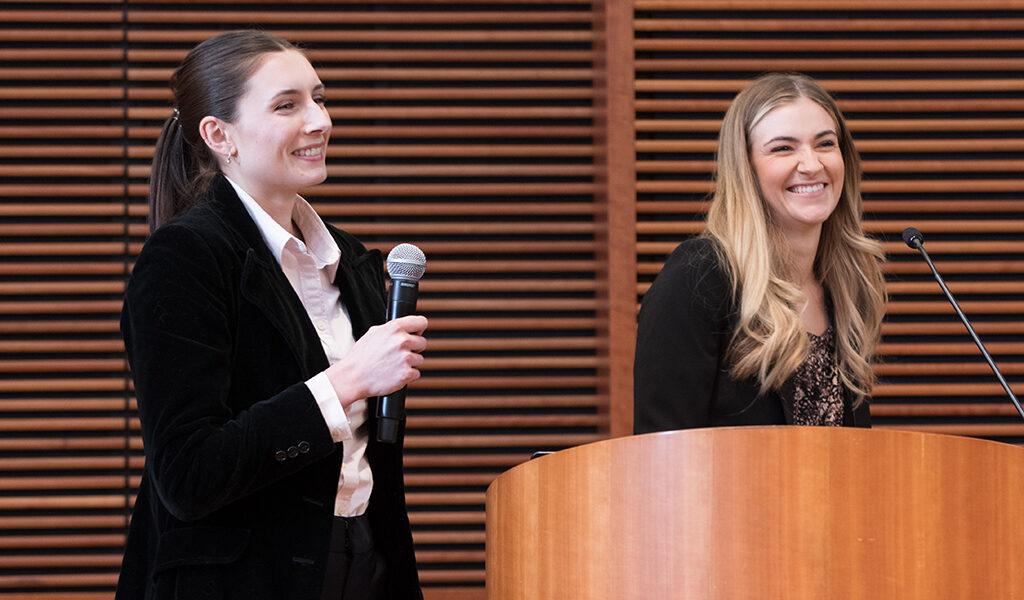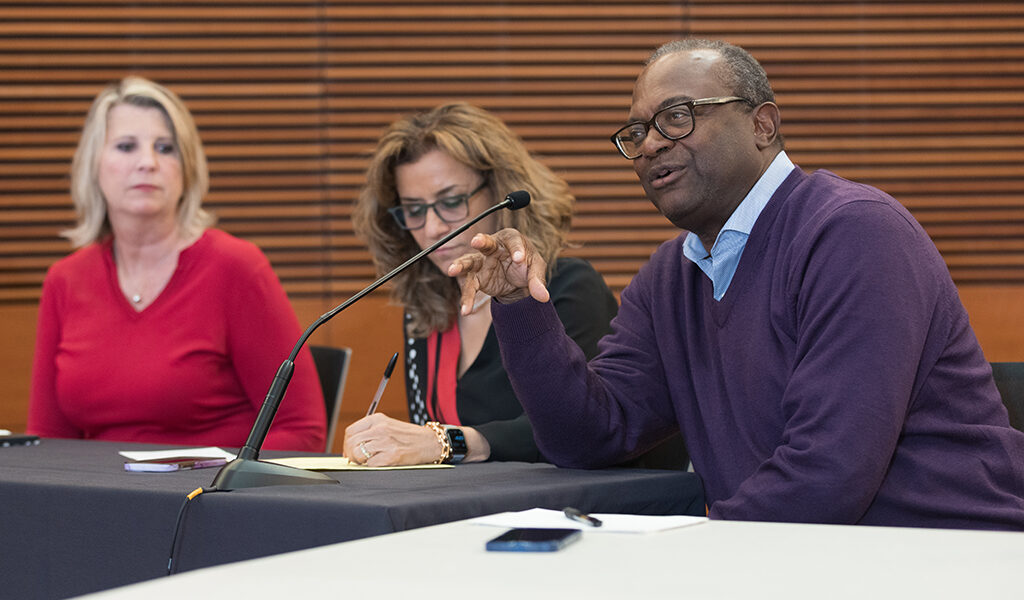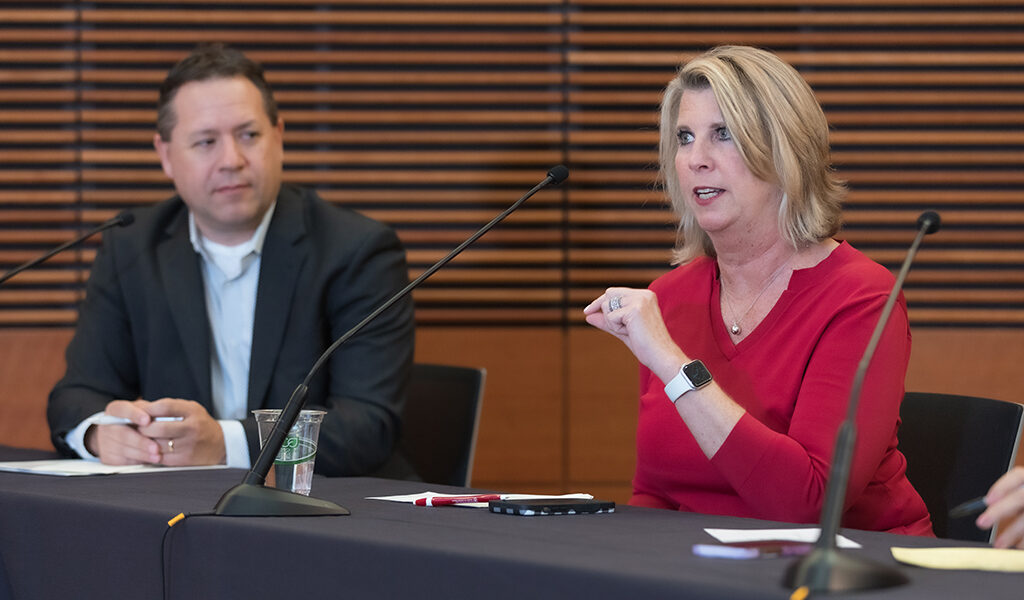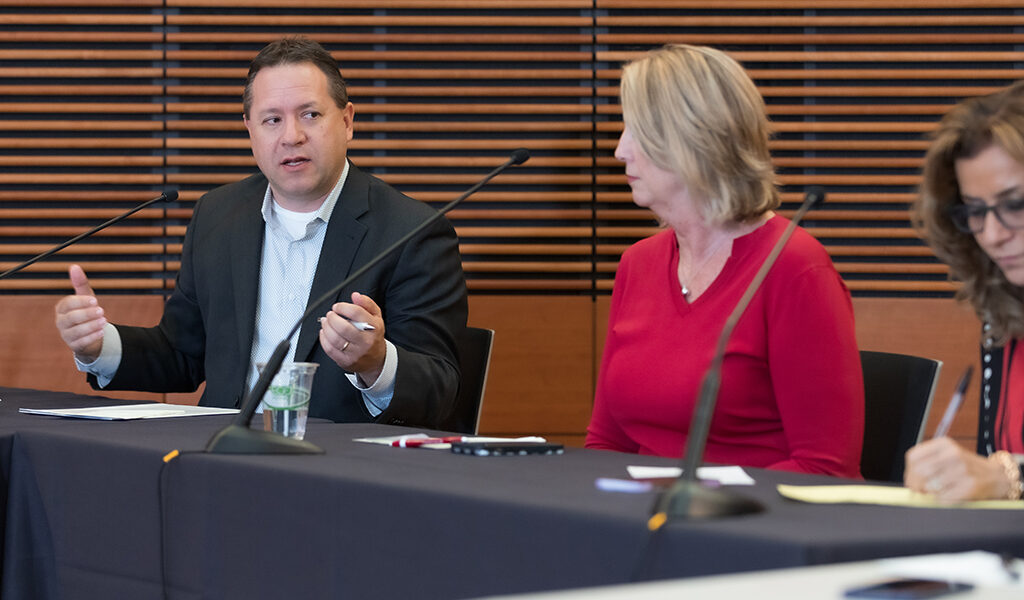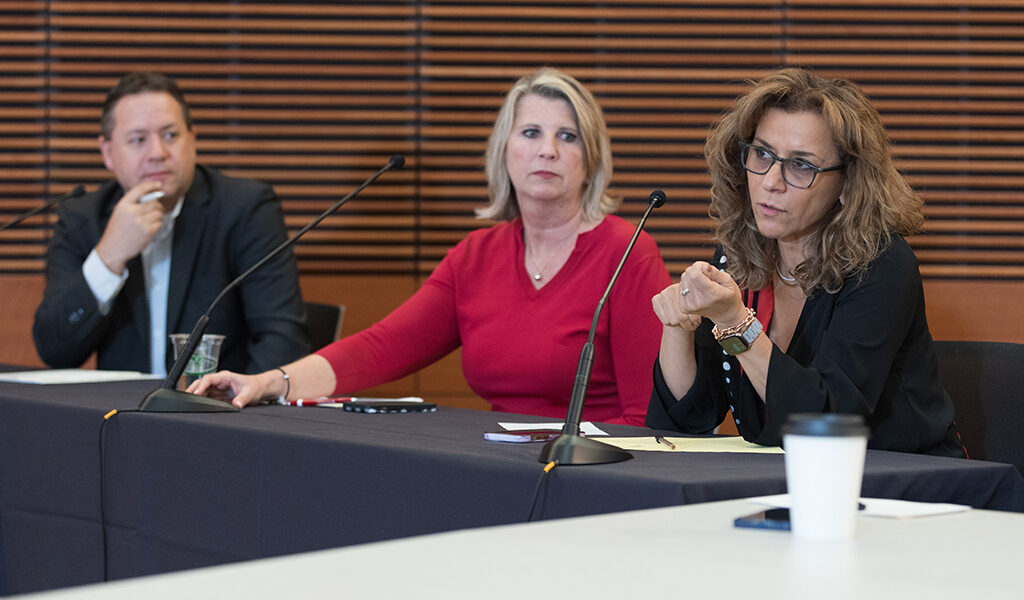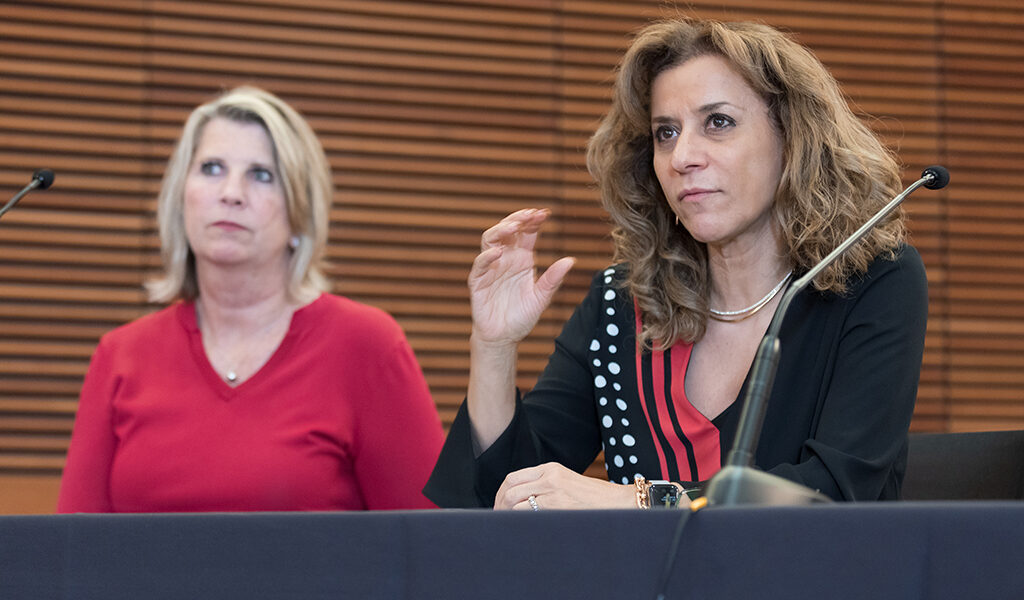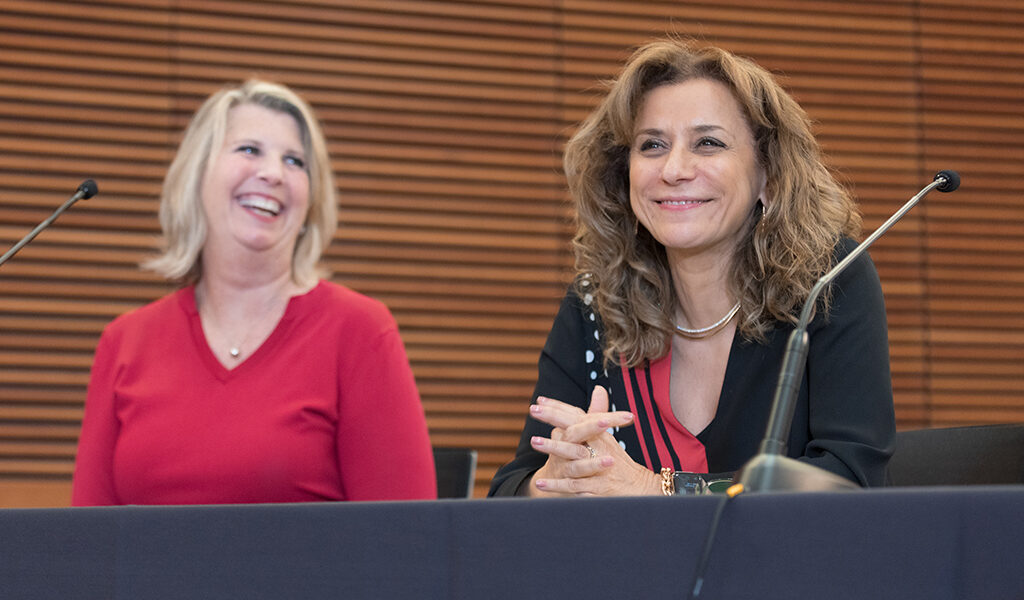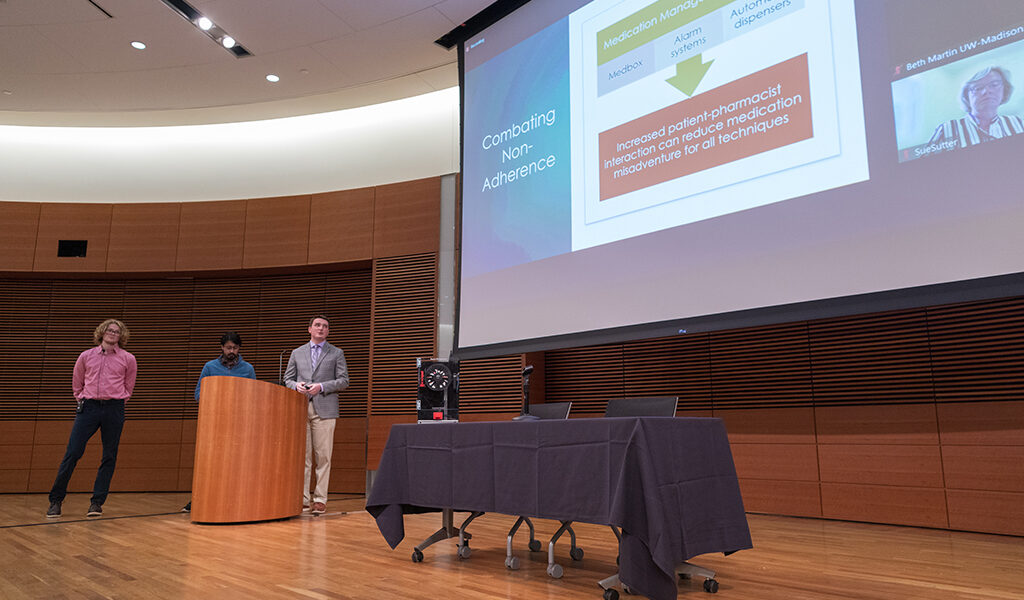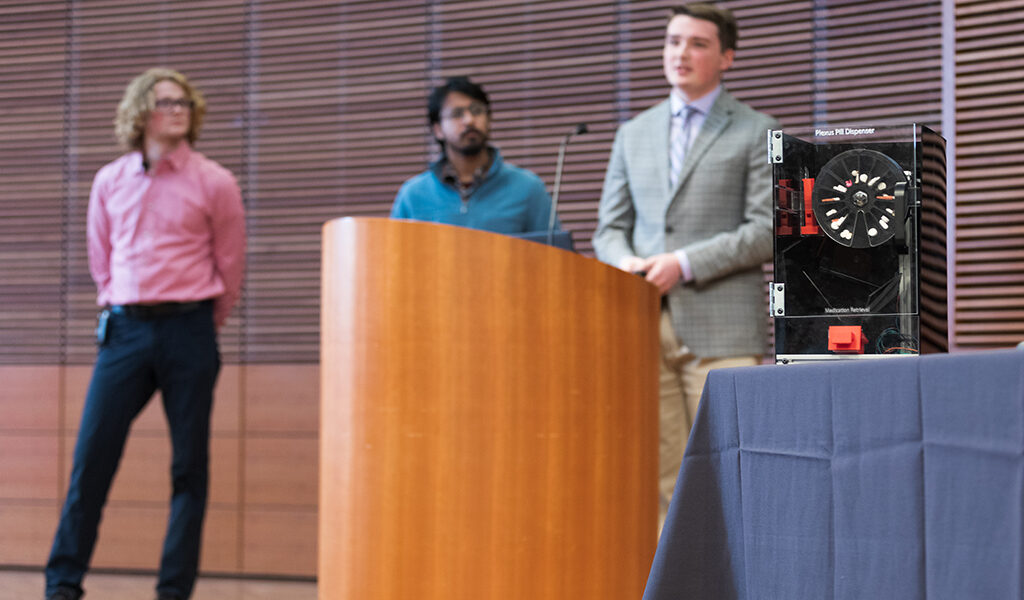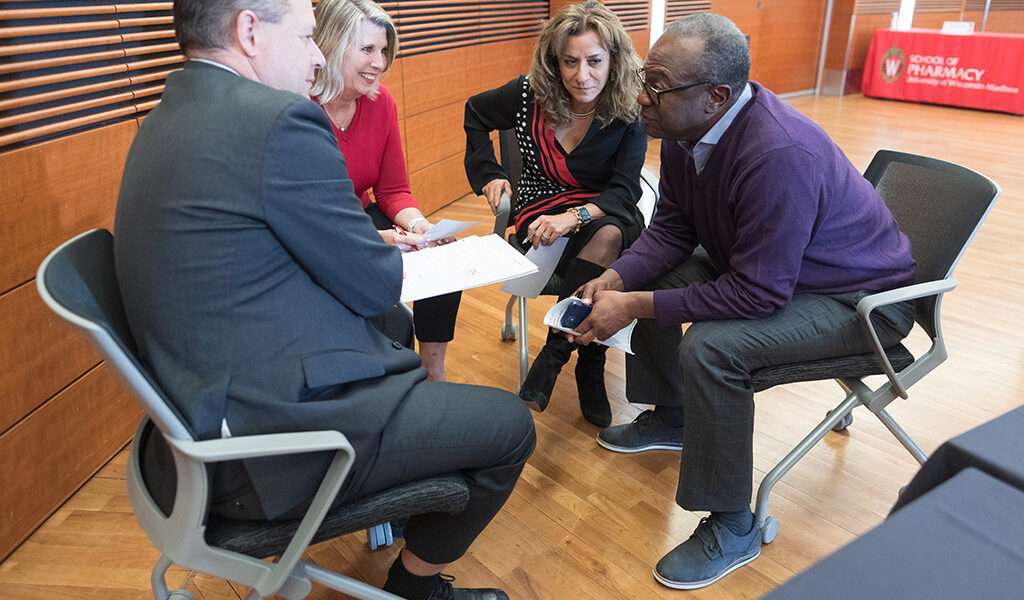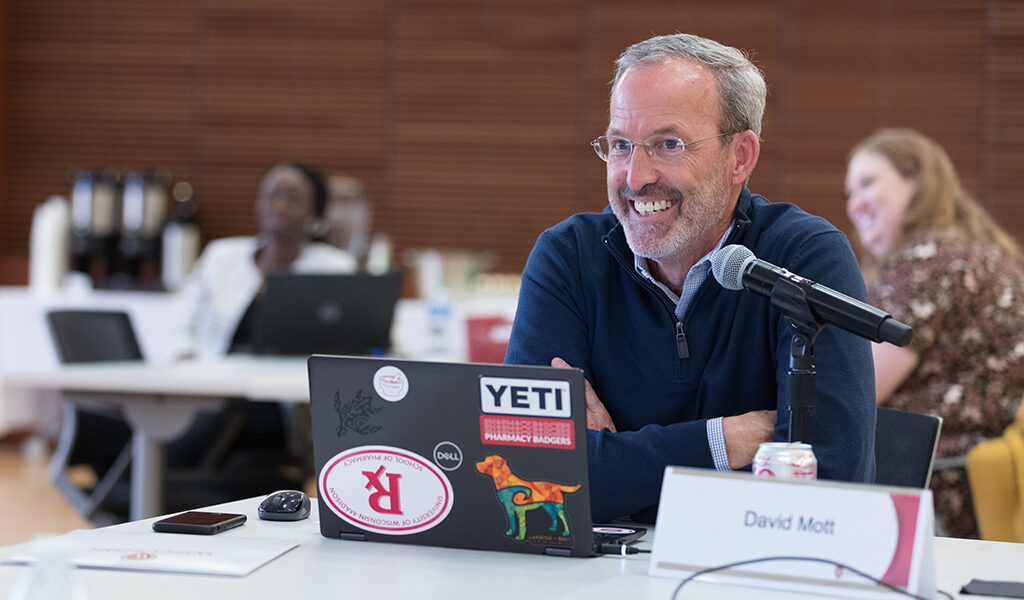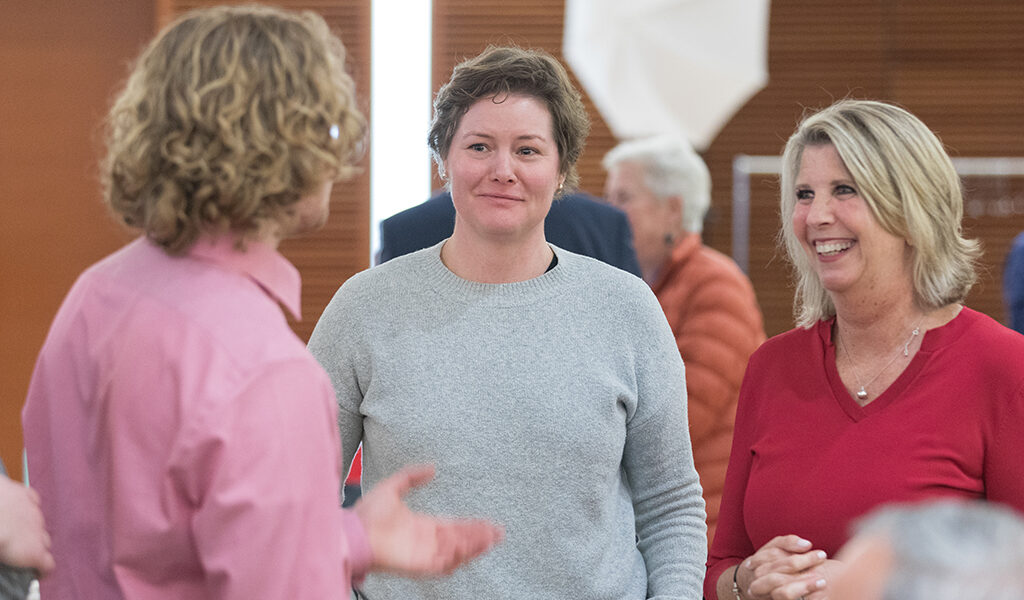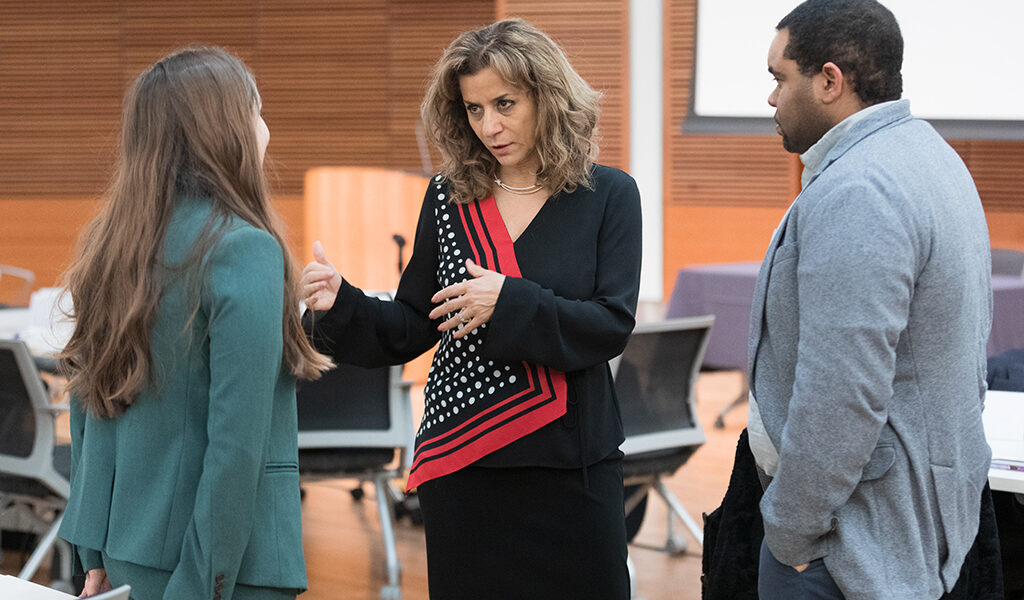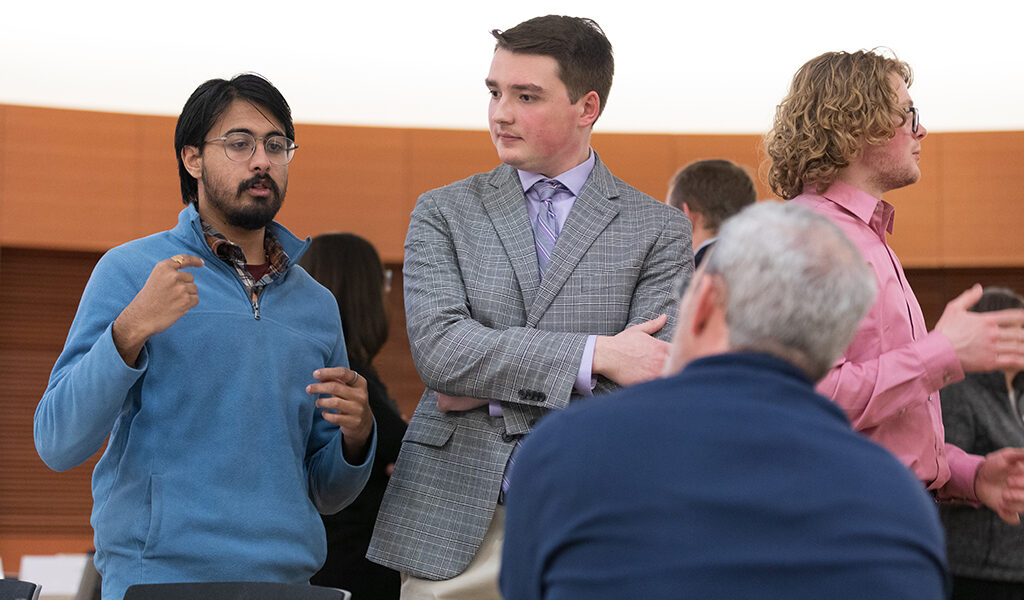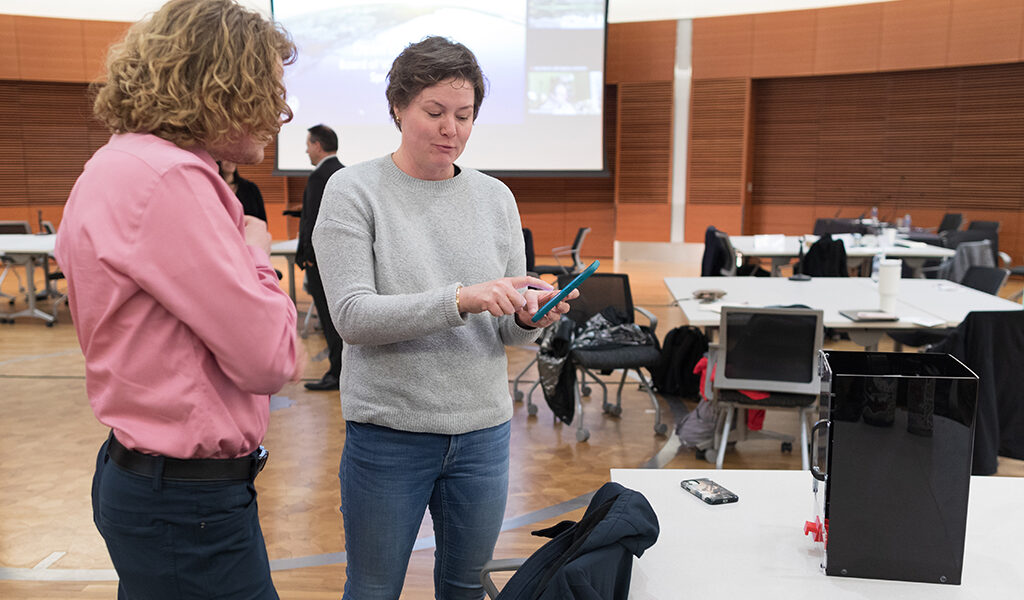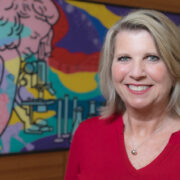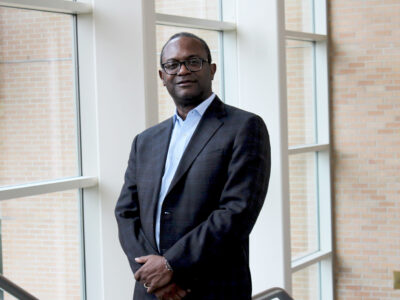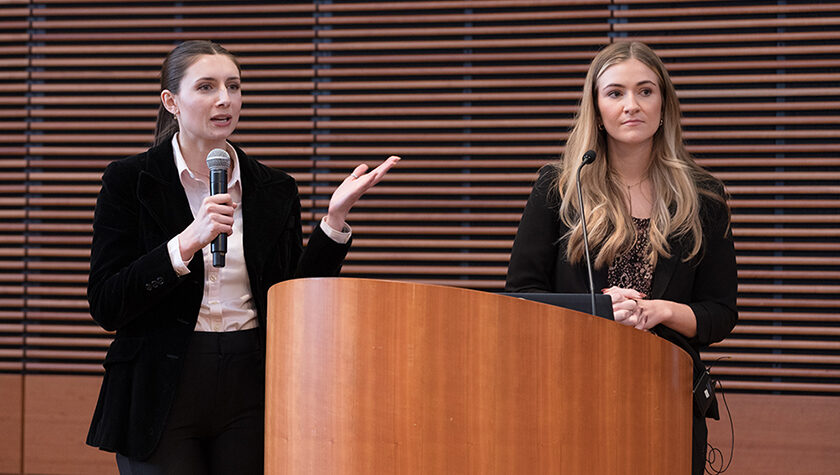
1
September

Student teams pitch new medication-focused apps and devices to a panel of School of Pharmacy alumni leaders
By Aarti Gupta
“Somewhere down the road, you’re going to see a healthcare problem, and you’re going to have an idea,” George Zorich (BS ‘78) says. As the CEO of ZedPharma and author of Entrepreneurs in Pharmacy and Other Leaders, Zorich has identified a need for pharmacy students to be able to think like entrepreneurs to excel in their professions.
“I think students just aren’t exposed enough to entrepreneurship in pharmacy school,” he says. “What if they wanted to start their own business? What if they had an idea of how to solve a healthcare problem — whether that’s through a service, app, or even maybe a business?”
That’s how the University of Wisconsin–Madison School of Pharmacy’s SHARx Tank competition got its start in 2018. It’s spearheaded by Zorich and Professor Beth Martin (BS ’90, MS ’03, PhD ’06), chair of the Pharmacy Practice and Translational Research Division and Assistant Dean for Teaching and Learning. Throughout a semester of meetings with PharmD students, Zorich and Martin work together to help cultivate students’ entrepreneurial thinking, culminating in presentations in front of business-savvy School of Pharmacy alumni judges.
“The School wants students to be innovators, so SHARx Tank emerged as a way to train students to think like entrepreneurs. This year’s presentations were so innovative. Students thought of things I couldn’t even imagine.”
—Debra Fluno
This year, the winning idea was a solution to a common issue during cold and flu season: OTC medication selection. Then-PharmD students Alexis Doering (PharmD ‘23), Elle Noone (PharmD ‘23), and Emma Behan (PharmD ‘23) presented Med Match OTC, a phone application which helps users select appropriate over-the-counter medication to treat the common cold and cough.
“The School wants students to be innovators, so SHARx Tank emerged as a way to train students to think like entrepreneurs,” says Debra Fluno (BS ’87), national director of pharmacy operations and support services for Cardinal Health, who served as an alumni judge. “This year’s presentations were so innovative. Students thought of things I couldn’t even imagine.”
Assisting medication selection
Before they can jump into the SHARx Tank, PharmD students must propose an idea to address an unmet need in the community to Martin and Zorich.
“The prompt we always send students home with the first week is to look at things with a different lens,” says Martin, who has been leading the competition since its inception. When you’re frustrated by something, think, ‘Is there some way we could do this differently either as a service, product, or approach that would improve it?’”
Doering, Noone, and Behan were initially inspired by wanting to increase people’s access to healthcare knowledge. Over the years, their goals more specifically aligned with providing accurate, accessible information about what over-the-counter medications to take for illnesses.
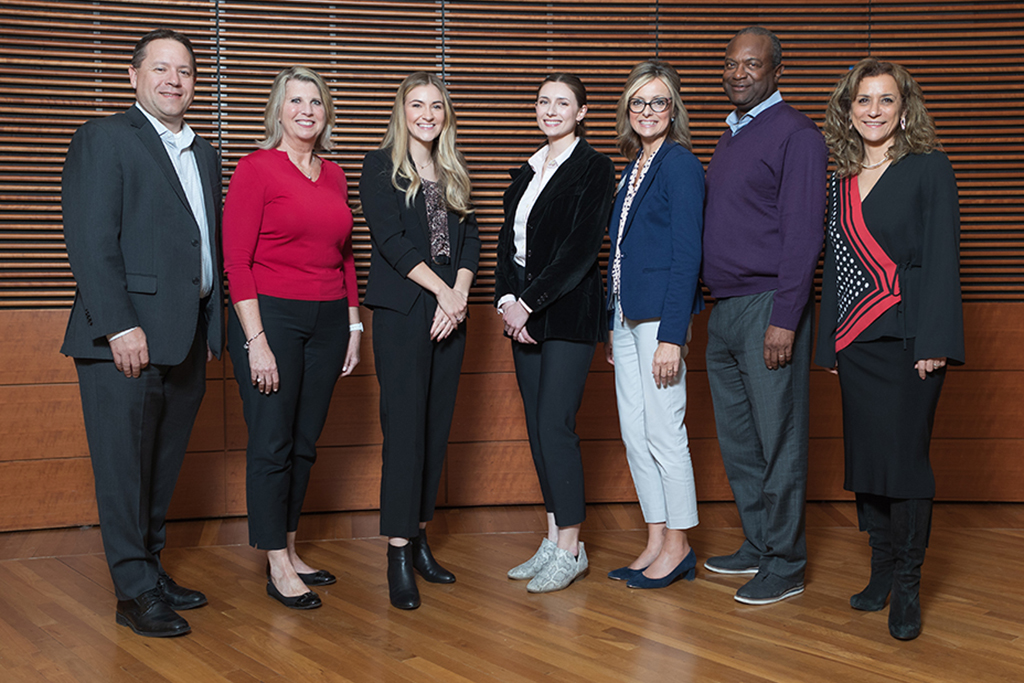
“In our second year, the three of us took a class called Service Operations through the School of Business,” Doering says. “We had to develop a service idea to present to our class, so we came up with the idea of increasing access to over-the-counter medications initially through a vending machine that could be put in gas stations and rural areas.”
As the team continued to develop their idea, they entered competitions like the Computer Science NEST pitch competition hosted at UW in partnership with startup accelerator Gener8tor, alongside a preliminary SHARx Tank round. Through feedback from these pitches, the PharmD students pivoted slightly to help people select appropriate over-the-counter medications to monitor their symptoms — and the idea for the Med Match OTC phone application was born.
Their next step was to learn more about the behavior of their target audience to understand what they would need in an app.
Behan went out and surveyed college students at Winona State: When you’re looking for medicine, are you calling your mom? Are you calling a friend? Are you using WebMD? Would you approach a pharmacist to ask for their help?
“Shockingly, most people called parents for information. It showed us that people want information about their health and what drug to take, but they’re not sure how to access it,” says Behan. “On our end, we’re pharmacists; we have the information, and we want to give it. We thought this could be an easy way to use artificial intelligence to help people.”
Using this information, the team developed a final prototype for Med Match OTC, a quick and efficient way to access safe medication. A user simply enters their cough or cold symptoms, medication preferences, and current health conditions, and the app’s algorithm generates a suggested medication. The user can also look at the price of the medication and select where and how they want to pick it up.
“We need more pharmacists thinking like Elle, Lexi, and Emma,” says Zorich. “They have the mentality of the Wisconsin Idea.”
Improving medication adherence
The second-place idea aimed to simplify medication regimens and increase adherence. Jan Maroske (recent graduate of the UW Mechanical Engineering program) and Riley Norman, Aaranyak Bhattacharya, and Jack Ruhland (recent graduates from the UW Biomedical Engineering program) were approached by Martin to bring their idea into the SHARx Tank. Originally, their Daily Dose Device was developed as a client project for Martin as a part of a biomedical engineering course.
“I have been consulting the biomedical engineering students on this particular project for a couple of years,” says Martin. “I said to them: ‘You guys need to do this. You need to be a part of this. This is a good opportunity to get reactions from folks in the pharmacy workplace and workforce.’”
For their project, the team developed a prototype of an automatic pill dispenser with visual and audio alarms that ensures medication is taken on time. Because it only carries about a month’s supply of medication, it also encourages frequent visits to a pharmacist, which has been shown to increase a patient’s adherence to taking medication.
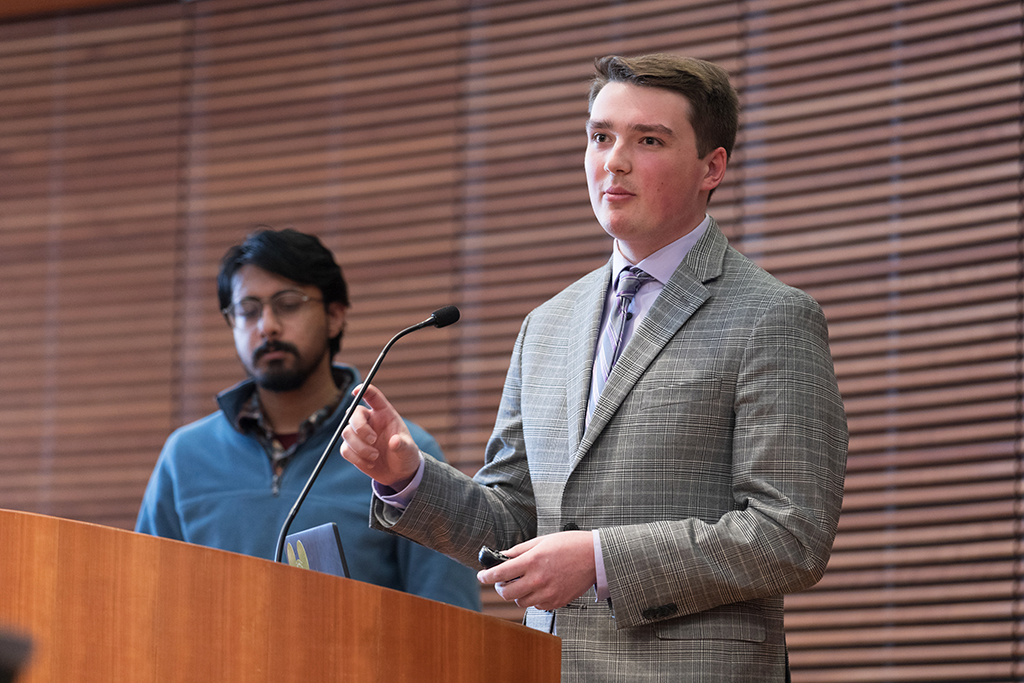
“Our platform was working on combining the automatic pill dispensing side with the patient-pharmacist interaction to build a platform that connects the patients with their pharmacists more accurately,” says Norman.
The team was largely interested in this project because it drew on their strengths as engineers.
“I was taking a lot of electrical and computer engineering classes for my bioinstrumentation track,” shares Ruhland. “This project was very heavily focused on instrumentation circuitry, which really drew me to it. It was nice to dive in and start working on a prototype.”
To build their prototype, the students were supported by a team of engineers at Plexus who helped with occasional consultations for technical aspects of the project, and supplies were provided by the UW Makerspace. Martin was also a key resource for the students to understand and work on the issue from a pharmacy practice perspective, rather than solely focusing on its engineering.
Their final product, Daily Dose Device, works by dispensing medication on a set schedule into a removable drawer. A visual and audio alarm that plays upon dispensing, and only when the user removes the drawer will the alarm shut off.
Preparing to present
Alongside developing their products, the contestants are challenged to think entrepreneurially about their ideas and prepare a thorough presentation for the final competition.
“We use George’s book as a starting point for our meetings with students,” says Martin. “Students read the first chapter and think: What are characteristics of an entrepreneur? What does it mean to you when you hear the word entrepreneur? Then we ask them: give us an idea you’ve got growing, give us something you struggle with.”
In a series of five meetings, PharmD students are exposed to the basic principles and characteristics of entrepreneurship, alongside learning the essentials of funding, creating business plans, marketing, conducting market research, and managing financials and risk assessments. These meetings also provide an opportunity for students to work with their peers to discuss any of their ideas and concerns about both their projects and presentations.
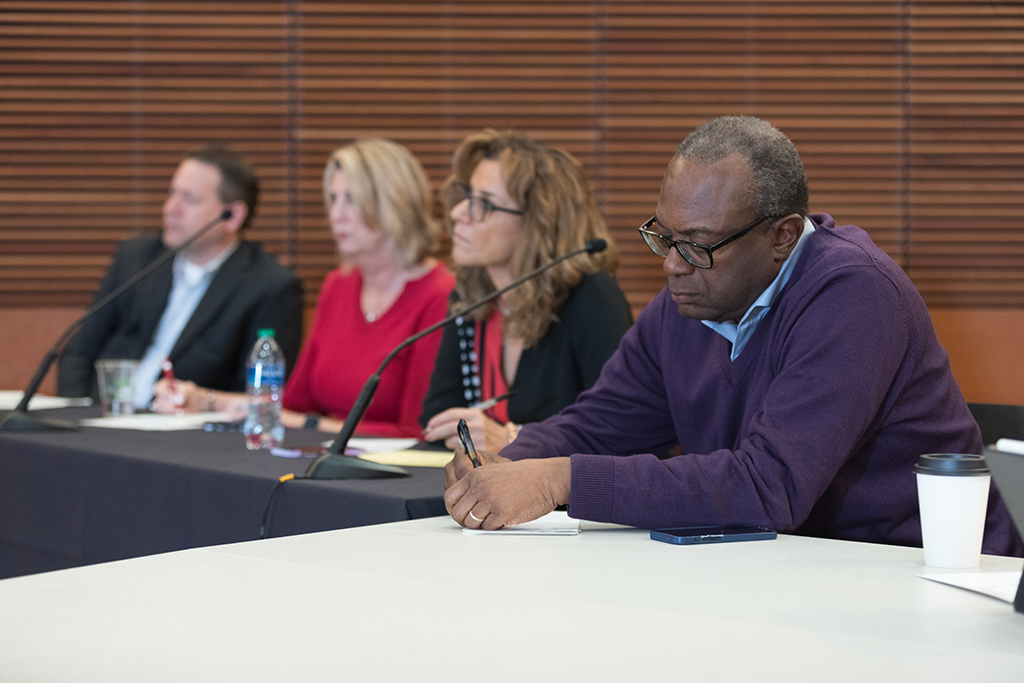
“Each team or individual that has their idea can share any concerns they have, and people can bounce ideas off each other and ask questions so they can further develop their ideas,” says Martin. “It’s important to be able to talk about your ideas in a safe space where you can go back and forth.”
In preparation for the competition, the Med Match OTC team largely focused on being critical of their work in order to anticipate questions from the alumni judges. This year, the judges panel consisted of Fluno; Brent Eberle (BS ‘98), senior vice president and chief pharmacy officer at Navitus; Azita Saleki-Gerhardt (BS ’88, MS ’91, PhD ’93), executive vice president and operations chair at AbbVie; and Bruce Scott (BS ’79), past president of Accredit Infusion Services at Medco Health Solutions.
As a two-time judge, Fluno enjoys seeing the students’ inspirational work.
“It’s a way to explore what the future of pharmacy and health care looks like and to expand students’ thinking beyond chemical structures and mechanisms of action,” she says. “They receive mentoring, get great exposure, and work very hard on their projects.”
For Doering, Noone, and Behan, this presentation was their last opportunity to pitch their product as students, and they’re happy their hard work these past two years paid off.
“Don’t be afraid to enter something that is outside your comfort zone. We’re not business people, but we leapt into the competition to see what we could learn and ended up really enjoying it and making connections,” says Noone. “If you have an idea, you have the opportunity to really run with it, especially at UW–Madison. You have the resources to get connected to engineers, professors and competitions. All you need is an idea.”


